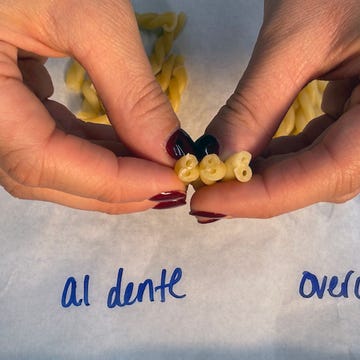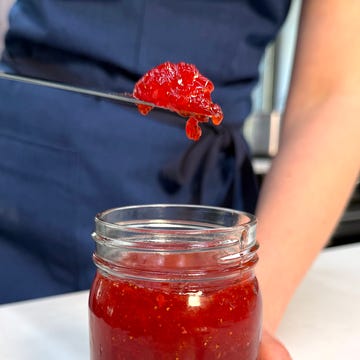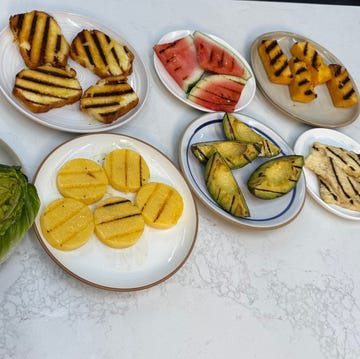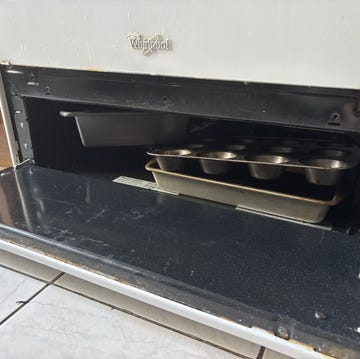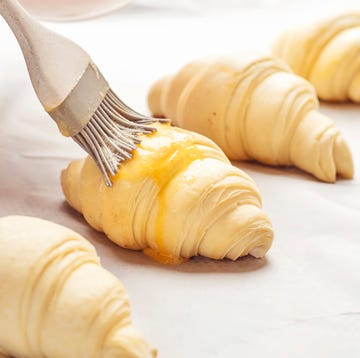1Unripe Avocados
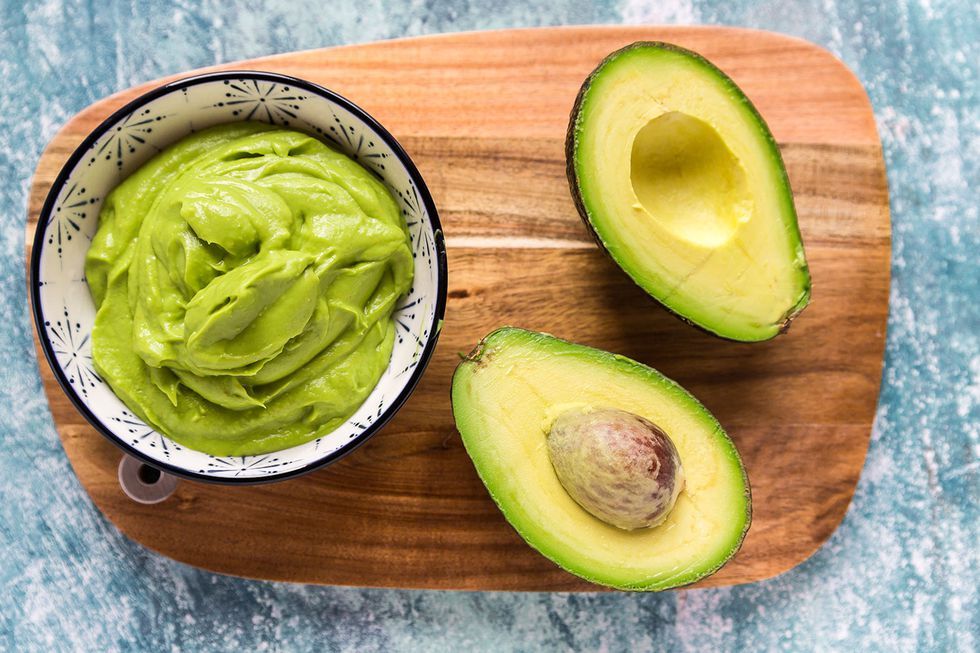 Getty Images
Getty ImagesAvocados will achieve peak ripeness quicker when stored at room temperature for several days.
2Basil
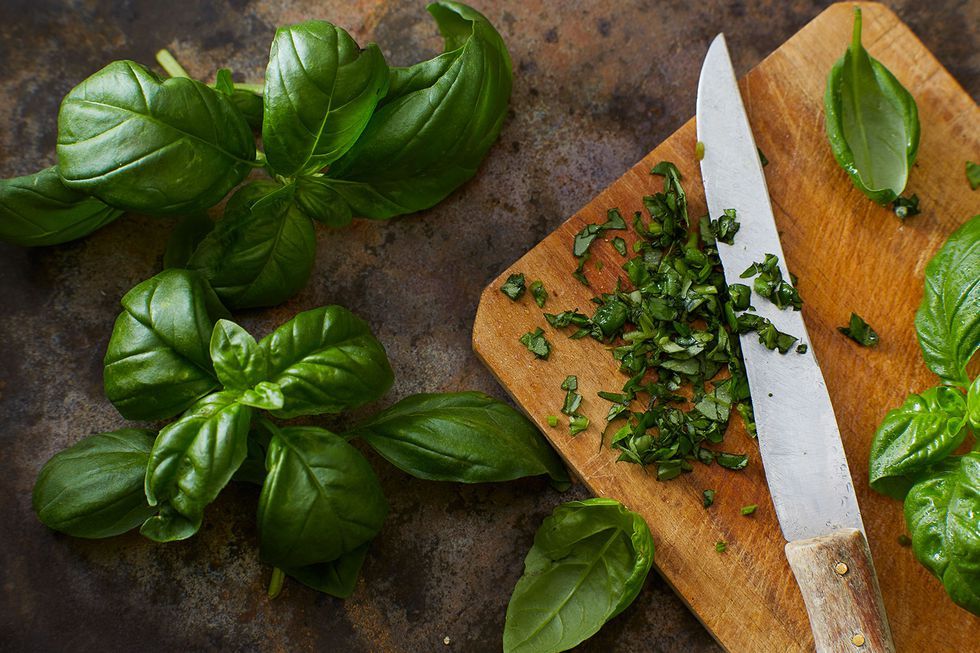 Getty Images
Getty ImagesBasil is best left at room temperature with the stems submerged in water—that'll keep the leaves from turning soggy and brown in the refrigerator.
Advertisement - Continue Reading Below
3Cucumbers
 Getty Images
Getty ImagesYou can (and likely have) stored cucumbers in the fridge. But you also might have observed something called "chilling injury," which causes water-soaked spots, shriveling, and yellowing after three or so days. If you do choose to refrigerate cukes, it's best to wrap them in plastic to minimize the moisture—and eat them ASAP in a salad or fresh raita.
4Onions
 Getty Images
Getty ImagesEver notice your onions getting soft and moldy in the fridge? It's caused by moisture. While you can refrigerate cut onions in a sealed container for two to three days, store whole onions somewhere cool and dry (but not in a plastic bag), away from potatoes.
Advertisement - Continue Reading Below
5Garlic Bulbs
 Getty Images
Getty ImagesWhole garlic and unpeeled cloves are best kept in a cool, dry place, in part because temps below 40°F speed the growth of a green sprout from the garlic. Refrigeration causes it to become rubbery too.
6Potatoes
 Getty Images
Getty ImagesThe added moisture from the fridge makes potatoes gritty and sweet. Store them in a ventilated container, such as a cardboard box or open paper bag, and out of direct light to prevent sprouting.
Advertisement - Continue Reading Below
7Tomatoes
 Getty Images
Getty ImagesKeep your whole tomatoes at room temperature to ensure optimal flavor and juiciness.
8Unripe Bananas
 Getty Images
Getty ImagesBananas need warmer temperatures to ripen, which means the fridge is definitely not the right place for them. With that said, you also don't want them too warm, so keep them out of direct sunlight.
Advertisement - Continue Reading Below
9Unripe Melons
 Getty Images
Getty ImagesMelons, including cantaloupe and honeydew, can be left out at room temperature so that they can ripen. Slices should be refrigerated, but you'll want to consume them within three to four days before they turn mushy and/or slimy.
10Olive Oil
 Getty Images
Getty ImagesOlive oil can form crystals and begin to turn solid if left in a refrigerator (which may also impact flavor). Your best bet is storing it in a pantry, away from light and oven heat.
Advertisement - Continue Reading Below
11Hot Sauce
 Getty Images
Getty ImagesThe vinegar in hot sauce keeps it preserved for six months, per the USDA—only creamy condiments need to be refrigerated.
12Ketchup
 Getty Images
Getty ImagesSurely, you've noticed that diners keep these bottles out all day? While you can pop the bottle into the fridge if you want to preserve quality for up to six months, it's safe to keep in your cupboard.
Advertisement - Continue Reading Below
13Soy Sauce
 Getty Images
Getty ImagesThanks to fermentation, you're safe keeping commercial soy sauce in a cabinet—though refrigeration will extend the flavor freshness for longer, according to Kikkoman.
14Butter
 Getty Images
Getty ImagesYes, dairy should be kept in the fridge...but storing butter makes it harden and tough to spread. You can actually keep sticks of butter out for two days (in reasonable, not-super-hot temperatures) so it maintains an enjoyable consistency.
Advertisement - Continue Reading Below
15Honey
 Getty Images
Getty ImagesHoney that's stored in an airtight container won't turn on you, no matter where you keep it—though it tastes best when consumed within two years of opening, according to the FoodKeeper app.
16Peanut Butter
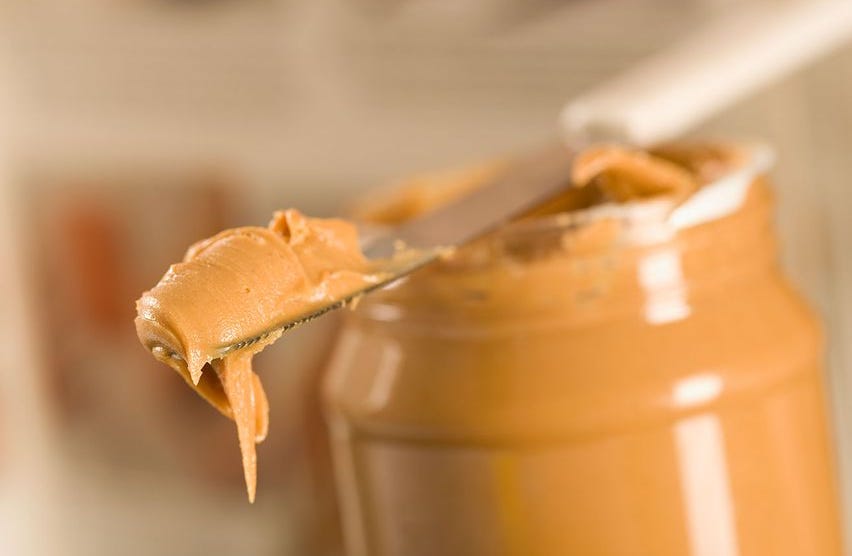 Getty Images
Getty ImagesYou've got three months to get through that jar of commercial peanut butter (a delicious challenge!) before you should store it in the fridge. Natural peanut butter without additives do go in the fridge to preserve best quality, though.
Advertisement - Continue Reading Below
17Nuts
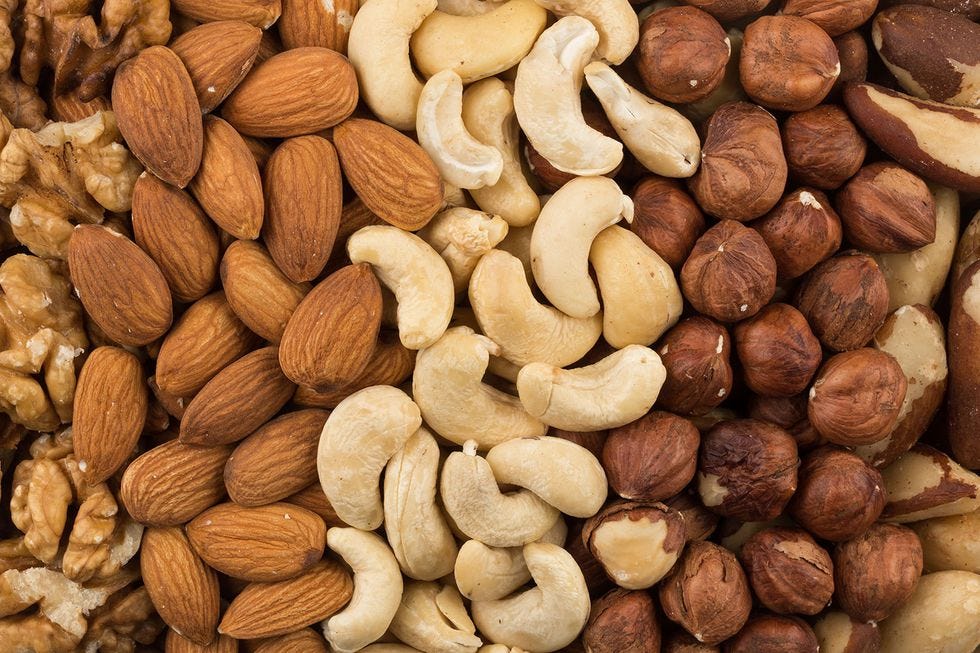 Getty Images
Getty ImagesThis one is divisive. While the USDA maintains that jars and cans of unroasted nuts can be stored in the pantry for two to nine months after opening with no major freshness loss, other sites claim that keeping them cold prevents rancidity and extends freshness. Our suggestion? Don't buy in bulk, keep 'em airtight in the pantry, and eat them within a few months.
18Pastries
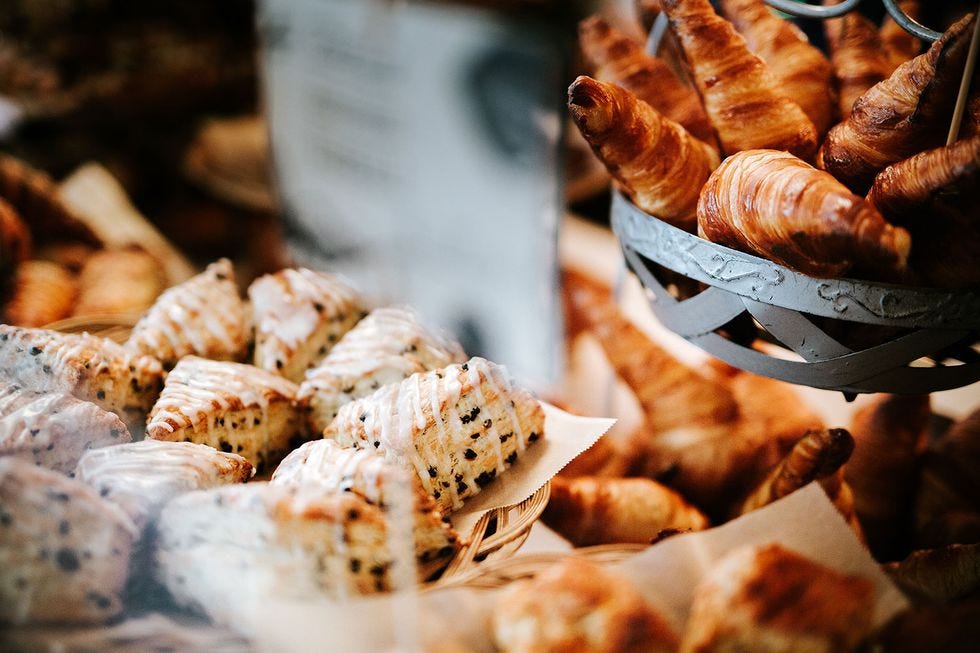 Getty Images
Getty ImagesWait, do you really have leftover pastries?! If you're saving goodies such as muffins for later, it's best to keep them in a paper bag at room temperature.
Advertisement - Continue Reading Below
19Chocolate
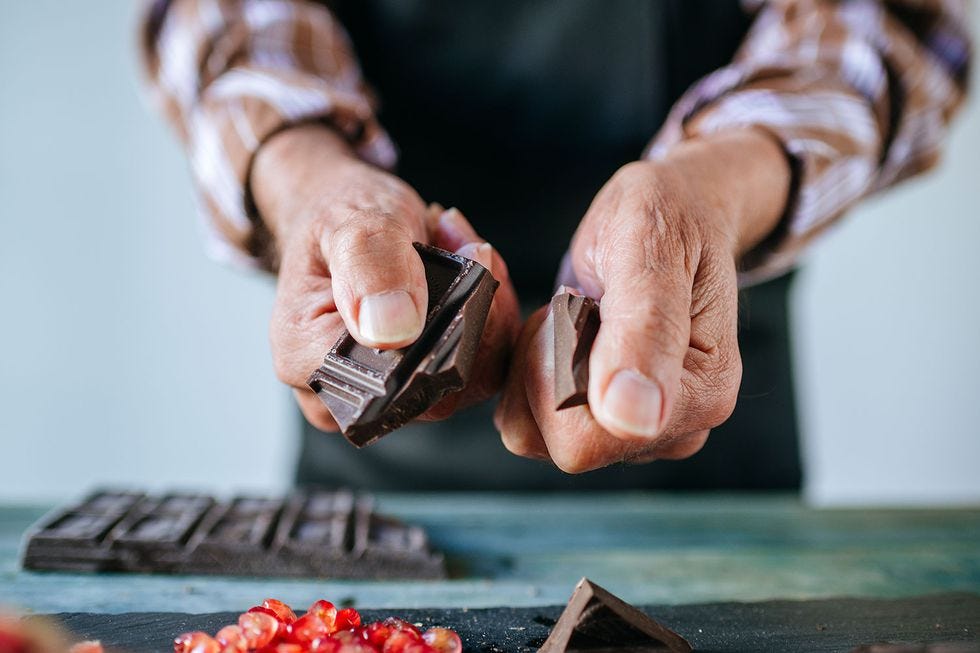 Getty Images
Getty ImagesUnless you're into dull flavor and grainy consistency, don't keep chocolate cold in your fridge. It tends to have maximum flavor at room temperature, and should be stored somewhere dark and dry.
20Coffee (Beans or Grounds)
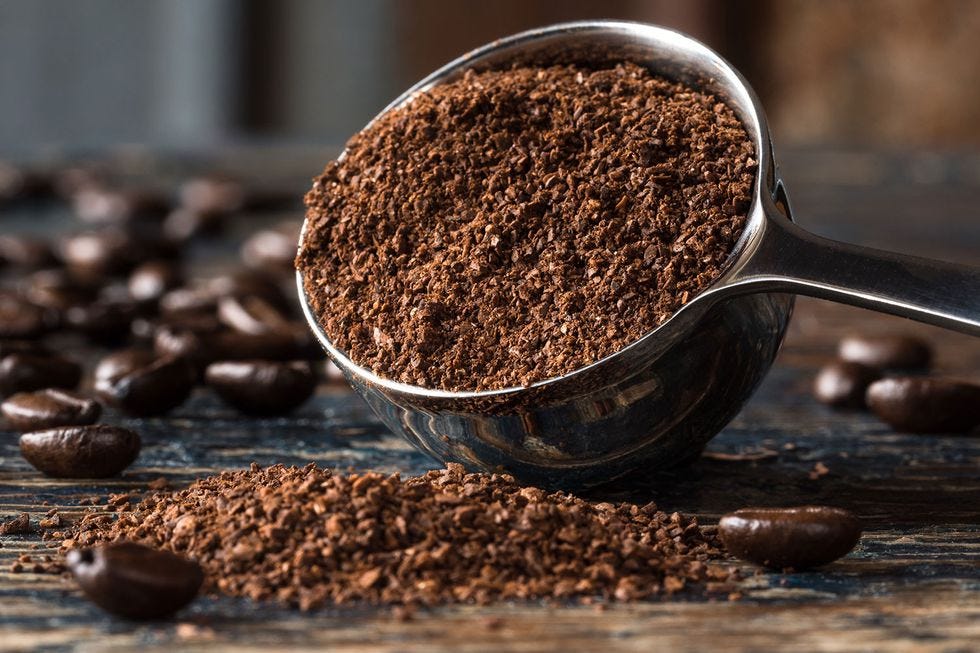 Getty Images
Getty ImagesCoffee belongs in an airtight container at room temperature if you're hoping to retain the flavor in your morning cup, per the National Coffee Association (NCA).
Advertisement - Continue Reading Below
Advertisement - Continue Reading Below
Advertisement - Continue Reading Below


